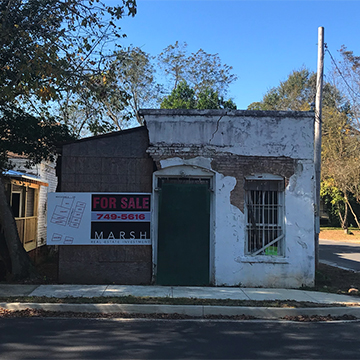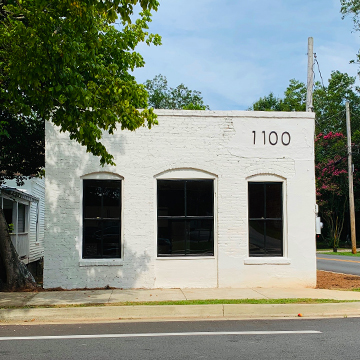John and Ashely Marsh were $1.5 million in debt, $99,000 overdrawn, and three days from divorce. Ashely was involved in an affair, and John felt he had no hope. “I kept thinking, ‘Kill yourself, kill yourself.’ Yet God said, ‘Die to yourself,’” John said in a recent interview. “The life I was living wasn’t worth living. I was supposed to lay my life down, not take it.” But, he said, he knew he couldn’t do that on his own.
“I told God, ‘You have set an unrealistic expectation for me. If love is what you expect from me, I’m sunk,’” he said. But according to John, that’s when God spoke back, showing him that the love he’s called to is not from him but for him: “I’m going to be patient, kind, long suffering, full of hope and belief that’s who I’m going to be to you.”
This reformed and transformed both John and Ashley; it saved their marriage and set them on a new trajectory.
“We are the governors of God’s goodness and power, ambassadors of hope,” John said. “To the amount you receive love, you can give it away. To the amount that you receive forgiveness, you can give it away.”
Sharing their story of restoration was the impetus for the business they soon began: the Marsh Collective, an Opelika, Alabama, group that works with real estate and community development, both through traditional investment and entrepreneurship.
Through the Marsh Collective, the Marshes have now helped start more than 60 businesses and have restored and renovated 280 buildings in their hometown of Opelika. Here’s how it works: As they evaluate a city — first just Opelika, now a dozen cities — they examine three states of vulnerability: economic vulnerability, relational vulnerability, and spiritual vulnerability. Then they look at who the objects of that vulnerability are. What they discover in this process is deeply integral to the way they approach a city’s development.
For example, “If you’re economically poor, you’re living paycheck to paycheck. If you’re wealthy, you have reserves and can pay your bills. If you’re flourishing, you have enough, and the excess you have, you put at risk to help others.” And further, “If you’re wealthy relationally, you have a network of meaningful relationships, and if you’re flourishing, you’re helping others to be and do their best.”
The Marshes’ approach asks questions to analyze the whole life of a community and its barriers to flourishing. When they’re partnering with a church through the Marsh Collective, John asks one other profound question: “What’s the one thing you could do for the good of your city that, 50 years from now, cannot be undone?”
John and Ashely say that it was very clear to them that the mission God was calling them to was for the redemption of both people and places. They figured if God could take their crumbling lives and bring beauty from them, then God could use them to restore these old neighborhoods, bringing beauty out of brokenness in real estate, too.


They started with residential homes. In Opelika, the Marshes had long noticed the neighborhood around them, many of the historic homes in desperate need of repair. The earliest days of the Marsh Collective were spent here, the work spent on restoring and renovating abandoned homes on unloved streets.
Then they expanded the work downtown. Opelika’s downtown wasn’t exactly thriving, and a significant instance of violence in the area further hindered people from living, working, or playing there. So the Marshes decided to shift their focus from residential streets to Opelika’s bleak downtown.
John recalled when they decided to do something about the city’s decline: “If you keep thinking that somebody ought to … you may be the somebody.”
“We thought, What would love look like if it showed up here? We started seeing guys get restored because we’d put them with guys who had been restored.” John said. “Everybody wants to be loved, wants to be seen.”
When it came to the business itself, from the beginning, the Marshes had this vision of a workplace where people could receive love through stability, friendship, and respect. So the Marshes were purposeful in their hiring, opening the work opportunity to imprisoned men who participated in a work-release program.
“I’d pick them up at 5 a.m. and take them back at 5 p.m,” explained John. “We would do all we could in that time to make the houses more beautiful. When stuff is so junky that nobody cares, everything you do makes it better.” Of course, they would soon make downtown Opelika more beautiful, too.

As the Marshes restored the buildings of their city, God began to rebuild relationships in Opelika as well. And then, as God often does with good work, he began to multiply it. People all over the country began noticing the restoration taking place in Opelika through the vision of the Marsh Collective, and people began to call, asking how John and Ashely were working toward the holistic restoration in Opelika, and asking how they might replicate that work in their own cities.
When the people who have the least can experience the most, John says, then a place is flourishing. But defining flourishing is multi-faceted. Flourishing has to do with economic, relational, and spiritual health. Like a marriage, which is how the Marshes discovered they needed to address the many aspects of a place, not just the structures that stood there.





